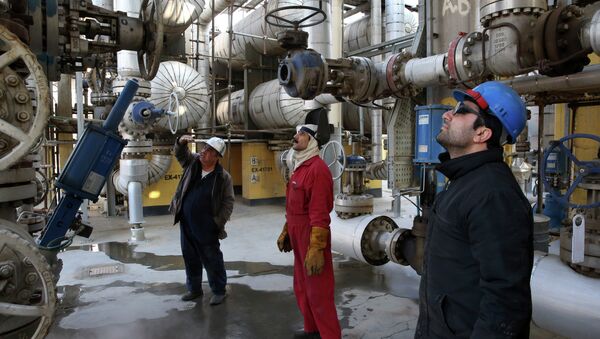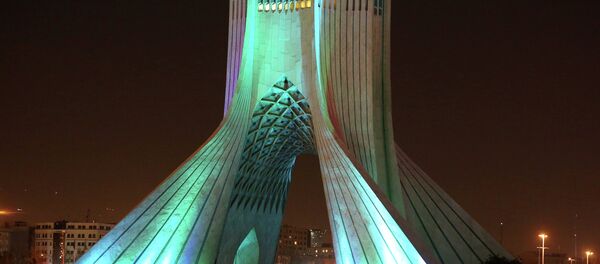TEHRAN (Sputnik) — Tehran plans to raise oil production by 1 million barrels a day in the coming months, Iranian Deputy Petroleum Minister Amir Hossein Zamaninia said Saturday.
"Within the next 5-6 months we will increase oil production by approximately 1 million barrels a day," Zamaninia told reporters on the sidelines of the Gas Exporting Countries Forum (GECF).
"We expect this to be done within the OPEC framework," the minister stressed. "We expect to raise [crude] production and exports, but only if the OPEC [production] quota remains unchanged."
The deputy petroleum minister said that Tehran would coordinate its steps with the Organization of the Petroleum Exporting Countries, which is a group of 12 oil exporting countries. The daily OPEC quota stands at 30 million barrels a day.
In August, Iranian Foreign Minister Javad Zarif said that the lifting of Western sanctions against Iran, following the signing of a groundbreaking nuclear deal, would eliminate all barriers for trade.
OPEC member countries are due to meet on December 4 to assess the oil cartel’s production policy and the global oil market.
At its last meeting in June, OPEC made a historic decision not to cut its oil production levels despite a slump in global oil prices. The decision was backed by Saudi Arabia and its Gulf Arab allies, who are eager to protect their market share against cheaper shale oil.


